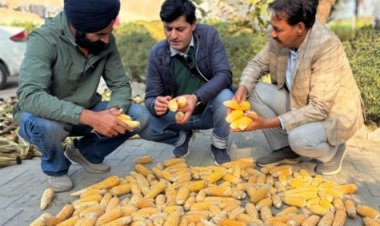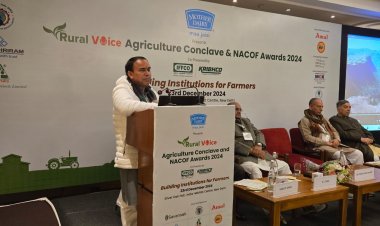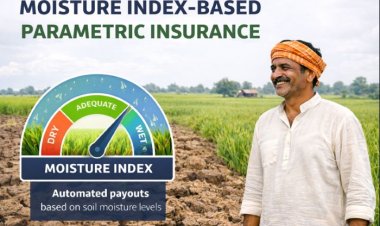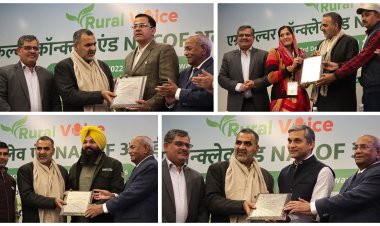Edible coating developed to prolong life of vegetables and fruits
A bio-degradable, edible coating has been developed and tested by scientists from IIT Guwahati in Assam, which they claim can keep the vegetables and fruits fresh for nearly two months. The research was carried out to help farmers keep their produce safe from sprouting and rotting for longer durations and help the country meet UN SDG targets on reducing food losses in production and supply chains.
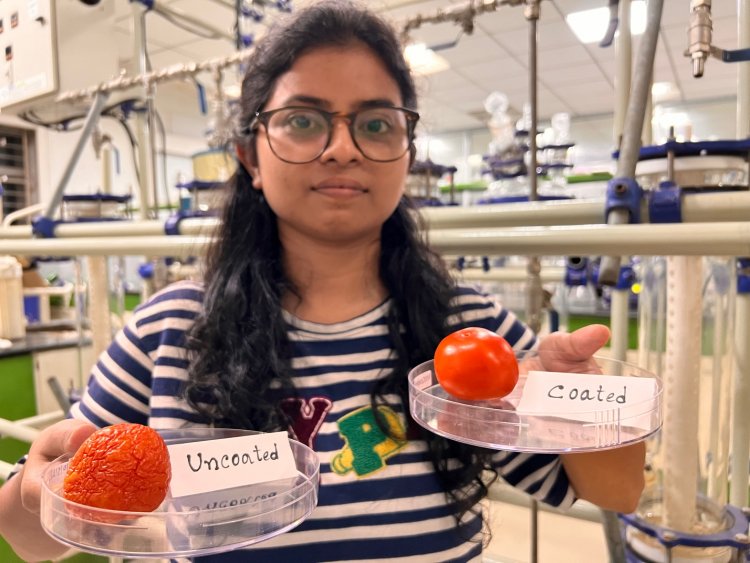
Vexed with your vegetables and fruits getting spoilt fast? Here is a solution, especially for farmers, that can reduce this problem and help increase their shelf life.
A bio-degradable, edible coating has been developed and tested by scientists from IIT Guwahati in Assam, which they claim can keep the vegetables and fruits fresh for nearly two months.
The coating material was tested on vegetables such as potato, tomato and green chilli and fruits like strawberry, apple, pineapple and kiwi.
The research was carried out to help farmers keep their produce safe from sprouting and rotting for longer durations and help the country meet UN Sustainable Development Goal (SDG) targets on reducing food losses in production and supply chains.
The IIT Guwahati team was led by Prof. Vimal Katiyar, Department of Chemical Engineering and Centre for Excellence in Sustainable Polymers (CoE-SusPol). The other researchers included Prof. Vaibhav V. Goud along with research scholars Kona Mondal, Tabli Ghosh, Mandavi Goswami, Shikha Sharma and Sonu Kumar.
The scientific paper has been published in journals including Royal Society of Chemistry Advances (https://doi.org/10.1039/D2RA00949H), Food Packaging and Shelf Life, Food Chemistry, IJBM, ACS-JAFC and American Chemical Society’s Food Science and Technology (https://doi.org/10.1021/acsfoodscitech.2c00174).
The problem and challenge
According to reports, 20-35% of the production from horticulture crops is being wasted in India due to a lack of proper post-harvest management. This includes a lack of adequate facilities for preservation, handling, pre-cooling, storage, processing, grading, packing and transportation. India is the second largest producer of horticulture crops after China.
“According to the Indian Council of Agricultural Research (ICAR), 4.6-15.9% of fruits and vegetables go waste post-harvest, partly due to poor storage conditions. The post-harvest loss in certain items like potato, onion and tomato could be as high as 19%, which results in high prices for this highly consumed commodity,” said Prof. Vimal Katiyar.
The scientists believe that their development could help the country meet SDG target 12.3 which is aimed at reducing food losses along the production and supply chains, including post-harvest losses.
The coating and the findings
The researchers used a mix of a micro-algae extract and polysaccharides to produce protective, edible films for coating vegetables and fruits. Dunaliella tertiolecta, the marine micro-algae, is known for its antioxidant properties and consists of bioactive compounds such as carotenoids, proteins and polysaccharides.
It is also used as a source of algal oil, which is used as a non-animal source of omega-3 fatty acid, and is being considered a source of biofuel. After the oil is extracted, the residue is usually discarded.
The researchers used extracts from this residue in formulating their film, in combination with chitosan. Chitosan, a carbohydrate, also has antimicrobial and antifungal properties and can be made into an edible film. Customised coating formulations are also developed to enhance the shelf life of produces based on the requirement.
The researchers tested the biosafety of these coatings on hamsters or rodents. The results showed that these coating materials were nontoxic and could be safely used as edible food packaging materials. They have also patented it.
According to Prof. Vimal Katiyar, “The newly-developed coatings can be mass-produced and are unique. They are very stable to light, heat and temperature up to 40 degrees C, edible and can be safely eaten as part of the product formulation and do not add unfavourable properties to it. They retain the texture, colour, appearance, flavour, nutritional value and microbial safety of the fruit or vegetable that has been coated, thereby enhancing their shelf life to several weeks to months.”



 Join the RuralVoice whatsapp group
Join the RuralVoice whatsapp group


















